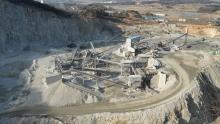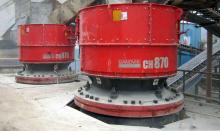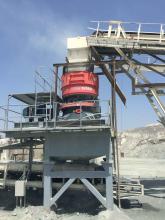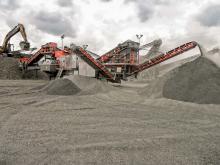A quarry facility in Russia has increased working efficiency by using Sandvik machinery. Located in in the Kurgan Region (Urals) of Russia, the Sinarsky Quarry is benefiting from an increase in throughput and reduced downtime since its new Sandvik crushing and screening plant became fully operational. The company invested over €2 million on the new plant, and is aiming to use it in order to double its aggregates production. This increase in production is required in order to meet the doubling of demand for
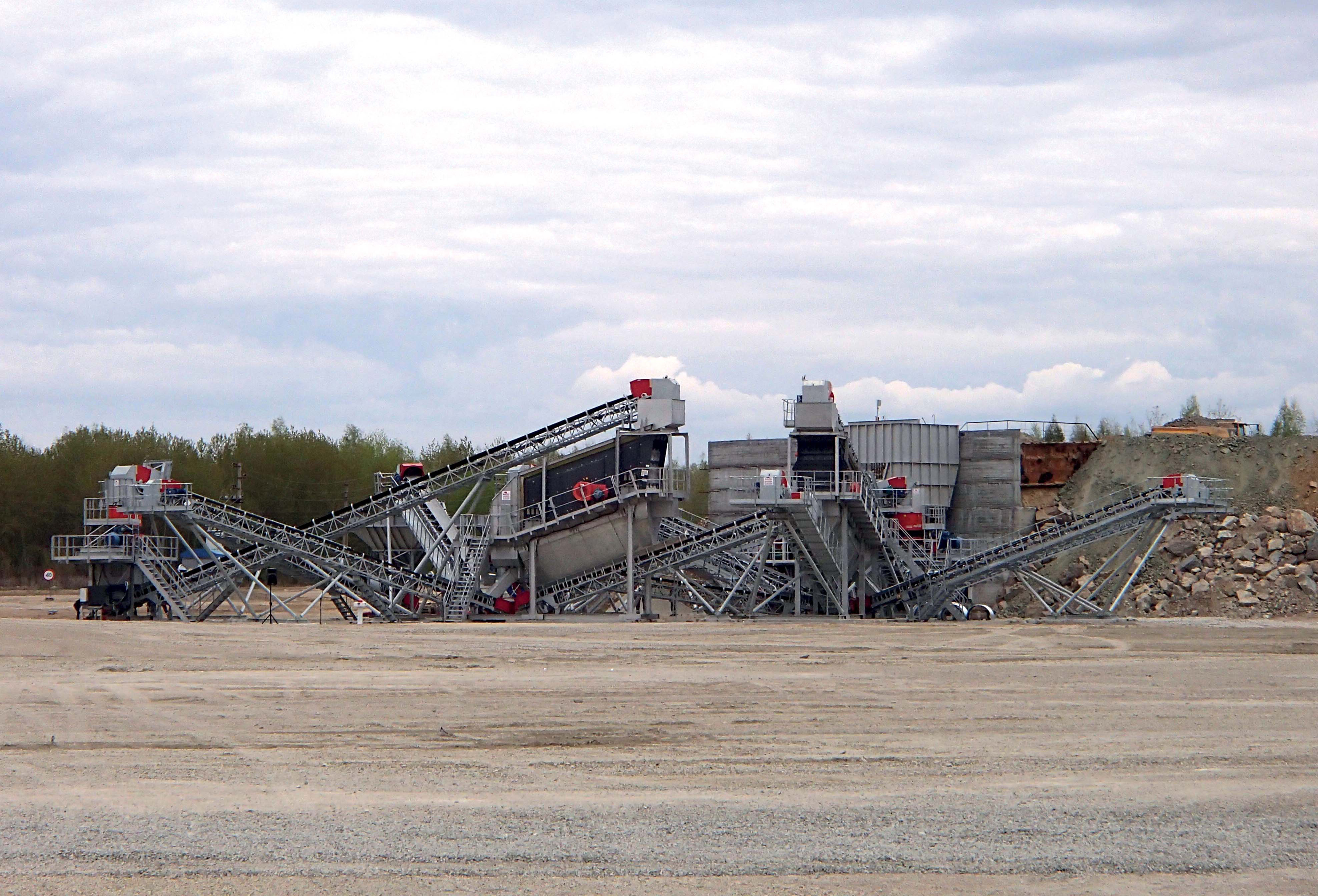
The new Sandvik crushing and screening equipment is helping the Sinarsky Quarry in Russia achieve its planned doubling of capacity
A quarry facility in Russia has increased working efficiency by using Sandvik machinery
Located in in the Kurgan Region (Urals) of Russia, the Sinarsky Quarry is benefiting from an increase in throughput and reduced downtime since its new325 Sandvik crushing and screening plant became fully operational. The company invested over €2 million on the new plant, and is aiming to use it in order to double its aggregates production. This increase in production is required in order to meet the doubling of demand for aggregates to be used on local authority road construction and infrastructure development projects.
The aggregates from the Sinarsky Quarry are in high demand as they offer high resistance and density, which is due to the geological qualities of the local touchstone and liparite. However, these attributes come at a price. The rock is very demanding on the efficiency of crushing and screening equipment.
When the management of the quarry sought to improve production it was decided to source equipment from a reliable European supplier that would be able to provide a suitable solution and deliver the increased demand for materials. To this end the firm contacted Sandvik Construction in Russia, which was able to supply the equipment and develop a suitable crushing and screening process that maximises output while ensuring accurately sized products.
Following discussions between Sandvik and quarry management it was agreed that the best solution for improving production was to supply an assortment of stationary equipment, comprising of three crushers, two screens, three feeders and one grizzly feeder. The first stage of the process sees the rock being fed to a ST1263 grizzly feeder. Here around 9% of fines (0–20mm) are separated. The material then proceeds to a CJ411 jaw crusher for primary crushing.
Following this the secondary crushing is performed by a CH440 cone crusher with an EC chamber which produces 0–5, 20-40 and 40–70mm fractions. After screening by a CS108, the oversize material is then recycled. The 5–20mm, 20–40mm and 40–70mm fractions are then fed into a CH440 cone crusher with an F-chamber for tertiary crushing.
The quarry was initially aiming to produce 5–20mm aggregates with 10% flakiness, but the first laboratory tests showed that the flakiness index to be below 5%. After tertiary crushing the material is fed into a CS126 triple deck screen which produces 0–5mm and 5–20mm final fractions. At first the share of the 5–20mm fraction was 36%, but thanks to the flexibility of the new plant, the quarry is now able to automatically change the volume ratio of desired fractions and thereby anticipate fluctuations in market demand.
In order to ensure that production requirements are being met a six-month trial period was scheduled. During this time the operators will undertake any required upgrades and find the best parameters for more efficient crushing.
However, the management of the Sinarsky Quarry foresees just a few shutdowns being required, as all the constituent crushing and screening parts have been primarily selected and configured in accordance with the results of geological tests performed by Sandvik specialists. This means that the equipment is focused on providing the best possible performance under the exacting current quarrying conditions.
The Sinarsky Quarry operation is proving to be a great success. This is not the only plant that Sandvik Construction has installed. However, it is the first of its kind.
Located in in the Kurgan Region (Urals) of Russia, the Sinarsky Quarry is benefiting from an increase in throughput and reduced downtime since its new
The aggregates from the Sinarsky Quarry are in high demand as they offer high resistance and density, which is due to the geological qualities of the local touchstone and liparite. However, these attributes come at a price. The rock is very demanding on the efficiency of crushing and screening equipment.
When the management of the quarry sought to improve production it was decided to source equipment from a reliable European supplier that would be able to provide a suitable solution and deliver the increased demand for materials. To this end the firm contacted Sandvik Construction in Russia, which was able to supply the equipment and develop a suitable crushing and screening process that maximises output while ensuring accurately sized products.
Following discussions between Sandvik and quarry management it was agreed that the best solution for improving production was to supply an assortment of stationary equipment, comprising of three crushers, two screens, three feeders and one grizzly feeder. The first stage of the process sees the rock being fed to a ST1263 grizzly feeder. Here around 9% of fines (0–20mm) are separated. The material then proceeds to a CJ411 jaw crusher for primary crushing.
Following this the secondary crushing is performed by a CH440 cone crusher with an EC chamber which produces 0–5, 20-40 and 40–70mm fractions. After screening by a CS108, the oversize material is then recycled. The 5–20mm, 20–40mm and 40–70mm fractions are then fed into a CH440 cone crusher with an F-chamber for tertiary crushing.
The quarry was initially aiming to produce 5–20mm aggregates with 10% flakiness, but the first laboratory tests showed that the flakiness index to be below 5%. After tertiary crushing the material is fed into a CS126 triple deck screen which produces 0–5mm and 5–20mm final fractions. At first the share of the 5–20mm fraction was 36%, but thanks to the flexibility of the new plant, the quarry is now able to automatically change the volume ratio of desired fractions and thereby anticipate fluctuations in market demand.
In order to ensure that production requirements are being met a six-month trial period was scheduled. During this time the operators will undertake any required upgrades and find the best parameters for more efficient crushing.
However, the management of the Sinarsky Quarry foresees just a few shutdowns being required, as all the constituent crushing and screening parts have been primarily selected and configured in accordance with the results of geological tests performed by Sandvik specialists. This means that the equipment is focused on providing the best possible performance under the exacting current quarrying conditions.
The Sinarsky Quarry operation is proving to be a great success. This is not the only plant that Sandvik Construction has installed. However, it is the first of its kind.

